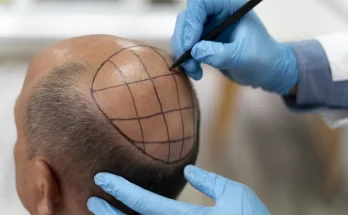Women often hear about the “change of life” from an early age. They see their mothers and grandmothers go through the symptoms. Television and movies make it seem like menopause is one of the worst things that can happen. However, do women really know what menopause entails?
As you read, you will be able to find out everything about this occurrence, from the reasons why you go through it, the symptoms, and even some of the infections and illnesses that might be a result of menopause.
What Exactly is Menopause?
Menopause is the era in a woman’s life when she no longer produces a monthly cycle, which means she can no longer have children. The ovaries stop generating estrogen and progesterone during menopause. This usually occurs between the ages of 45 and 55, though some women can experience it earlier or later in their life.
It is also important to know that this condition is biological and not medical. Anyone with ovaries and estrogen is bound to go through it, whether naturally or through ovary removal during surgery. Postmenopausal symptoms last roughly four to seven years.
Symptoms
The most common symptom of this life change is hot flashes. Though the exact origin of hot flashes is unknown, they are thought to be triggered by a drop in estrogen levels. As estrogen levels fall, the body’s temperature-regulating mechanism weakens, resulting in temperature fluctuations and hot flashes. Hot flashes usually last two to five minutes and might happen numerous times each day. This can also lead to extreme warmth and night sweats.
Another common symptom is weight gain. When the hormones change in your body, your appetite and metabolism can both change. This could lead you to eat more. You may also begin to feel more sluggish, causing you to stay idle, so calories have less of a chance to burn off.
Many women also experience mood swings, vaginal dryness, and heart palpitations. However, aside from physical symptoms, there are psychological ones, too. Because menopause is such a big change, some women have felt an increase in anxiety and depression.
If any of these are affecting you, it is best for you to talk to your doctor to ensure that you are going through menopause. They can also help you if your symptoms worsen over time.
Health Conditions Associated With Menopause
Over time, it has been shown that women who have been through menopause have an increased likelihood of developing the following:
UTIs
Because menopause changes your immune system, you can be more prone to common bacterial infections such as urinary tract infections (UTIs). UTIs start in the urethra and spread toward the rest of the urinary system, mainly the bladder. This is often symptomized by a burning sensation while urinating, muscle aches, and chills.
To lower your risk factor for UTIs postmenopause, you can take daily UTI supplements by Utiva Health. Using a cranberry-based formula, these natural pills defend your body against harmful bacteria. Over 7,000 doctors in North America recommend Utiva Health to their patients now!
Heart Disease
After menopause, estrogen levels fall, which can result in an increase in LDL cholesterol and a reduction in HDL cholesterol. Because estrogen helps to maintain blood vessels flexible, without it, blood vessels might become small and inflexible, making blood flow more difficult. Furthermore, menopause can result in changes in weight and fat distribution, which might raise the risk of heart disease.
Although heart disease cannot be 100% stopped, there are many steps you can take to keep yourself healthy. This includes daily exercise, such as walking or jogging. You can also take on a better diet with more heart-healthy foods, like vegetables, fruits, and things high in fiber.
Osteoporosis
The condition of osteoporosis is characterized by weakening bones and an increased vulnerability to fractures. Although both men and women can develop osteoporosis, it is more frequent in women over the age of 50. Several factors, including hormonal changes and a reduction in bone-building cells, may contribute to the development of osteoporosis following menopause. Furthermore, decreased estrogen levels might exacerbate bone mass loss.
While there is no cure for osteoporosis, there are therapies that can help to prevent or delay the disease’s development. Lifestyle adjustments such as weight-bearing exercise and increased calcium consumption, as well as drugs such as bisphosphonates, are examples of this. If you are concerned about the state of your bones, your doctor can arrange for a bone density test.
Taking Care of Yourself During Menopause
As you might expect, the symptoms and side effects of menopause are quite uncomfortable. Thankfully, you can take the initiative to ensure that those years you go through the change are more bearable.
For some women, this includes taking over-the-counter medications, such as hormone replacement therapies. Other women talk to their doctors to get prescriptions for depression and anxiety so that some of the tension that they are feeling is alleviated. If your sleep schedule is disrupted because of symptoms, you can take melatonin before bed.
To deal with hot flashes and sweating, trying to keep cool is the best course of action. This can include wearing lighter and more breathable fabrics like cotton, even if it is cold outside. You can also utilize fans more often, especially at night if you deal with night sweats.
Another great choice you can make is within your lifestyle. As mentioned when discussing heart disease, diet and exercise can change the way your body reacts to certain risk factors. Since menopause can also make you gain weight, trying to keep active can help keep your body toned.
If you have other concerns, contact your doctor right away to help develop a strategy that works best for your body and its needs.
Conclusion
Menopause might sound like a lot to deal with, but it is a normal part of a woman’s life. Every other woman in your life has gone through it and managed it, and you can, too. By taking some initiative, you can lower your chances of having a difficult time or dealing with severe symptoms.
Utiva Health wants to be a part of your daily routine. Their goal is to improve the urinary system health of all, and this includes women postmenopause. Along with their UTI supplements, they also make pills for overactive bladder symptoms. To learn more about how they can help you, visit www.utivahealth.com. You can see just how many other customers rave about their work.



